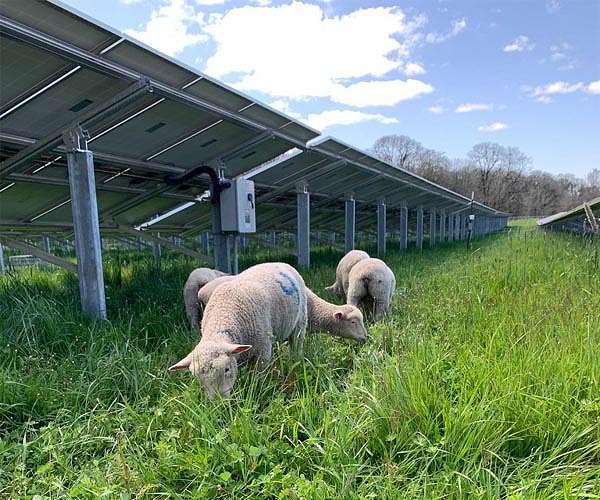Rutgers selects SolarEdge for research and development in the agricultural sector
SolarEdge Technologies reports that its technology has been selected by Rutgers, the State University of New Jersey, as part of an innovative research and demonstration program to explore the potential of dual-use agricultural voltaics (the combination of agricultural production and solar energy generation simultaneously in the same way). land) for farmers across the state.
Rutgers’ research will support the Dual-Use Solar Energy Pilot Program to be administered by the NJBPU. The pilot program is a three-year, 200 MW agrivoltaic initiative aimed at exploring the feasibility and benefits of agrivoltaic energy. The pilot program is a joint effort between the NJBPU, the New Jersey Department of Agriculture, the State Agricultural Development Committee, the New Jersey Department of Environmental Protection and the Rutgers Agrivoltaics Program.
The results and data from the research program will be used as the basis for establishing a permanent Dual-Use Solar Program in New Jersey. The Rutgers Agrivoltaics Program includes three sites, each using a different panel mounting method to investigate the impact on agricultural production and electricity generation:
+ Rutgers Animal Farm in New Brunswick has vertically mounted two-sided panels and will be used for forage production and beef cattle grazing (170 kWDC installed and connected to the grid)
+ Snyder Research and Extension Farm in Pittstown features single-axis trackers and will be used for hay production (94.5 kWDC installed and 82.4 kWDC connected to the grid)
+ The Rutgers Agricultural Research and Extension Center in Bridgeton has single-axis trackers with both single-wide and double-wide row panels and will be used for vegetable and staple crop production. (255 kWDC installed and 48.6 kWDC connected to the grid)
+ At each site, the study will evaluate electricity production, using Module Level Power Electronics (MLPE) to measure and analyze energy production.
Agrivoltaics is a fast-growing and hugely exciting sector that addresses many of the business challenges farmers face today, from managing rising energy costs to moving to more sustainable production.
However, we are still at the beginning of this journey. The aim of our research is to develop knowledge that will help establish practices that can help improve both the sustainability and viability of farms through the safe and regulated application of solar energy. We are excited to work with SolarEdge to achieve these goals, said Margaret Brennan-Tonetta, Director of Resource and Economic Development and Senior Associate Director of the New Jersey Agricultural Experiment Station.
Bertrand Vandewiele, General Manager of SolarEdge in North America, said: Agrivoltaics is a perfect example of a true win-win situation. This practice allows for comprehensive solar energy development to address climate change without the land use challenges that often accompany ground-mounted solar projects. It can also benefit farmers, enabling a stable income stream and protection against climate hazards. In the US there are more than 500 agrivoltaic sites, producing a total of 9 GW of solar energy.
These numbers are likely to rise as interest in agrivoltaic energy has increased significantly, as evidenced by the increase in support and financing for this sector. For example, U.S. Department of Agriculture funding for agricultural voltaics more than tripled between 2021 and 2022.
Farmers can switch to more sustainable and profitable production without substantially reducing the space for growing crops. Agrivoltaic solar energy can potentially boost production of certain shade-tolerant crops by providing protection from direct sunlight, while the cooler temperature under the panels reduces water evaporation. In the meantime, the end consumer can feel good about choosing products from sustainable farms. Through this partnership with Rutgers University, we look forward to doing our part to promote the adoption of more sustainable and profitable agricultural practices.


